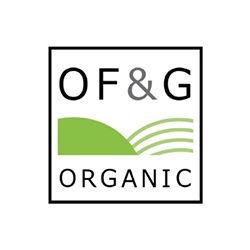US spring wheat futures hit a three-year high as drought conditions continue in the northern US plains and Canada, with the poorest rainfall for 20 years.
There is general concern about the availability and quality of US high protein hard red milling spring wheat which has been hit hard by the drought, so prices moved above $7/bushel with a potential to reach $8/b compared to standard feed wheat which was trading at $4.6/b on the July futures yesterday, and is $4.95/b today. In effect US milling wheat is lifting global feed wheat.
UK November wheat futures closed at £149.40/t, £4/t higher than Monday. The USDA reduced its forecast of yields by 3b/a to 43b/a, which is the equivalent of a reduction of 1mt, so 425mt instead of 426mt (472mt last year). The reduction in US wheat production by 46mt from last year is another reason why many traders are jittery and markets volatile.
The next USDA acreage and stocks report was issued on Friday evening (too early to digest here, but the markets responded bullishly to it.
This week markets were in short-covering mode fuelled by a weaker $, the month end and the prospect of a long weekend ahead of July 4th Independence Day. As of June 25th the US winter wheat harvest was 48% complete of which only 46% was good/excellent. In Kansas the harvest started on June 15th and is now about 60% complete; yields have been slightly higher than average.
The weather in Europe and the Black Sea is largely favourable although the recent heatwave may have caused some damage and Strategie Grains has reduced its forecast for French feed wheat by 1.6mt. The Black Sea area has already started its barley harvest with rapeseed and wheat to follow shortly.
President Temer of Brazil has been charged with accepting bribes from the meat-packing company JBS, and further charges of racketeering and obstructing justice are in the pipeline. He was allegedly recorded endorsing the payment of ‘hush-money’ to a former politician (now in jail). It would appear that the chief prosecutor has no fear, allegedly having a list of more than 50 people implicated in Operation Car Wash (see previous reports) that he wants to interview. The Brazilian economy is in deep recession, and the currency devaluation makes it more expensive for them to import, but boosts the income of any farmers wanting to sell soya. Brazilian farmers have sold about 60% of their soya (74% last year), so despite the better exchange rate, because CBOT prices are below $10/b compared to $12/b last year, they are stockpiling soya in silo bags in the hope of a US soya crop failure.
Export activity in Argentina has slowed, as China's Cofco office at Rosario has been hit by the Petya malware variant which has deleted data. Soya wheat and fertilizer shipments to China have been interrupted. GM Soya is about £270 ex port, aided by Sterling rose above $1.30 for the first time in five weeks on Thursday.
Scientist Mary Stoddard measured 50,000 eggs from 1400 bird species and characterised the shape into asymmetry and ellipticity (try saying that after a couple of pints). They discovered that most flightless birds have spherical/elliptical eggs without asymmetry, whilst birds adapted for high-powered flight maximize egg size by increasing egg asymmetry and/or ellipticity.
Regards,
Paul Poornan & Martin Humphrey
Read more here: Science Mag






















